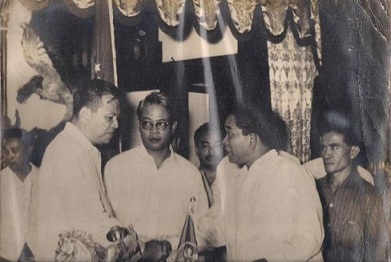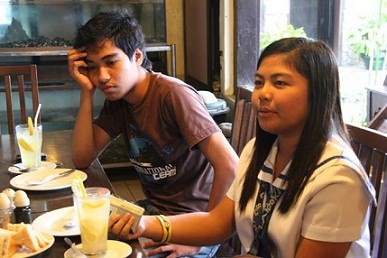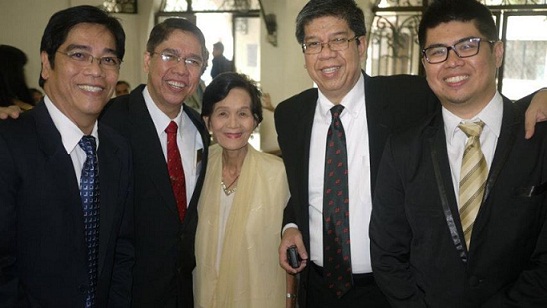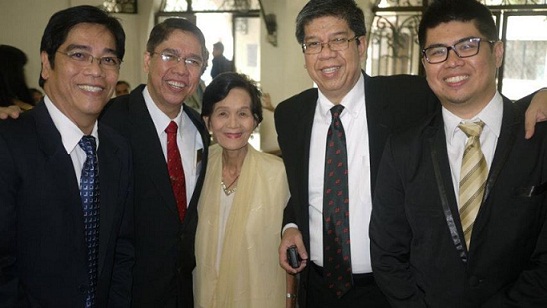By PABLO A. TARIMAN
BATTERED by typhoons, ruled by two generations of politicians and largely influenced by the Church which has lured many a young islander to take up priesthood for many decades, Catanduanes – the 12th largest island in the country — now wears a proud face with its sons and daughters making their mark in the national scene.
One of the top two successful examinees in the recent bar exams is from Catanduanes. Catherine Beatrice O. King Kay, who belongs to the Olanka family in Viga town, got 84.72 percent in the 2012 lawyers’ licensure exam less than a point behind the bar topnotcher.
The new president of the Catanduanes State University (CSU), Dr. Minerva I. Morales, is proud that under her term, the school was declared the second best performing midwifery school by the Philippine Regulatory Commission while producing the top five successful examinees in the PRC Licensure Examinations, among others.
Lately, the school’s official tertiary student publication’s literary folio won the second place award in the 73rd National Student Press Convention of the College Editors Guild of the Philippines (CEGP) on April 12-16 at University of San Carlos, Cebu City.
 Like it or not, the Sarmiento brothers –Rep. Cesar V. Sarmiento; Jorge V. Sarmiento, president and chief executive officer of Philippine Amusement and Gaming Corporation (PAGCOR), and former Comelec commissioner Rene Sarmiento– represent the island’s modest and hardworking families.
Like it or not, the Sarmiento brothers –Rep. Cesar V. Sarmiento; Jorge V. Sarmiento, president and chief executive officer of Philippine Amusement and Gaming Corporation (PAGCOR), and former Comelec commissioner Rene Sarmiento– represent the island’s modest and hardworking families.
Speaking at the recent commencement exercises of the Catanduanes State University, PAGCOR’s Sarmiento opened his heart out to confess his humble origins. “I remember the time when all of us (four brothers and a sister) were in college. We barely had enough for daily allowance, for books and many other things a student needed. That is why my parents could not afford to get sick because they have to work every day. I remember my father getting sick one day and over the objections of his doctor, left the hospital to look for money for our baon and transportation.”
Rep. Sarmiento unabashedly cried when his aunt Gloria Magistrado passed away after the elections. “It was to her that I ran to for my graduation ring when I graduated at San Beda College.”
Except for random reports of vote-buying, an election in Catanduanes (with 163,563 registered voters) was surprisingly peaceful with both winners and losers taking their political fortunes in stride.
The re-electionist congressman made history by garnering 101,156, the first candidate to overshoot the 100,000 mark. His closest rival, Leandro Verceles, Jr., got a measly 16,315 votes while another, Restituto de Quiros, Jr., tailed behind with 2,006 votes.
 A perennial election hotspot in the 70s and 80s, Catanduanes witnessed a new kind of politics taking shape with no report of armed men interfering in the election process and with losers not resorting to “people power” ploy to hang on to their position.
A perennial election hotspot in the 70s and 80s, Catanduanes witnessed a new kind of politics taking shape with no report of armed men interfering in the election process and with losers not resorting to “people power” ploy to hang on to their position.
In a clear contrast to elections in the 70s and the 80s, guns were unheard of and gold minimized but otherwise admitted by both the young and veteran elections watchers as “a necessary evil.”
Like it or not, it’s hard to erase patronage politics in an island which is just a microcosm of the national political profile.
The Albertos (former representatives Juan and Jose) ruled the island for almost three decades with the only politically active descendant, Virac Mayor Jose U. Alberto II, recently wrapping up his last term. Like the family affair that this country is, Mayor Alberto passed on the position to his wife Nanette who won handily in the recent elections.
In fairness to Gov. Cua, he has a sense of history and the personal paraphernalia of the Albertos and other worthy sons of the island are now housed in Museu de Catanduanes which he initiated during his economically fruitful term.
Meanwhile, the young student leaders re-affirm their links to the island and what they think should change in the future. For John Ely Templonuevo, a third year CSU education student, the island will always be his home. “I like its clean air and the good roads. It is a perfect place to raise a family.”
CSU high school student Camille Andrea Gianan — who can’t forget the strong Typhoon Reming that hit the island in 2006 — said one of the islander’s best qualities is resiliency. “I think we have proven to the world that we can withstand the worst natural calamities with us finding a way to survive. Life in this island is still the best we have.”
For Kristine Gay Tapel who studies at Bato Rural Development High School, the old political practice must go: “In the future, I think we must make cheating and vote buying a thing of the past.”
Former island trial court judge and bar topnotcher Romulo Atencia has a timely call for post-election healing by saying: “We are not just Liberals and Nacionalistas, or UNA.We are citizens of the Republic of the Philippines and residents of Catanduanes who have mutual needs, concerns and values. It is my hope that we could seek to bring healing into our lives, schools, work places and homes.”

